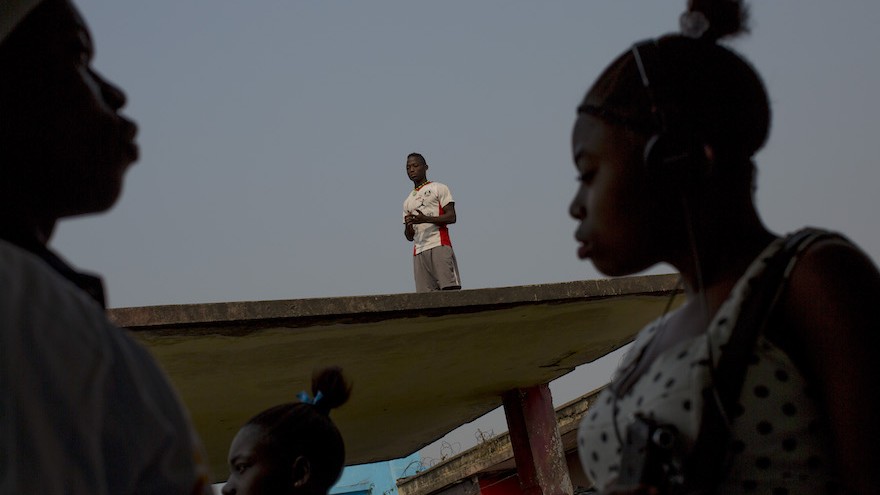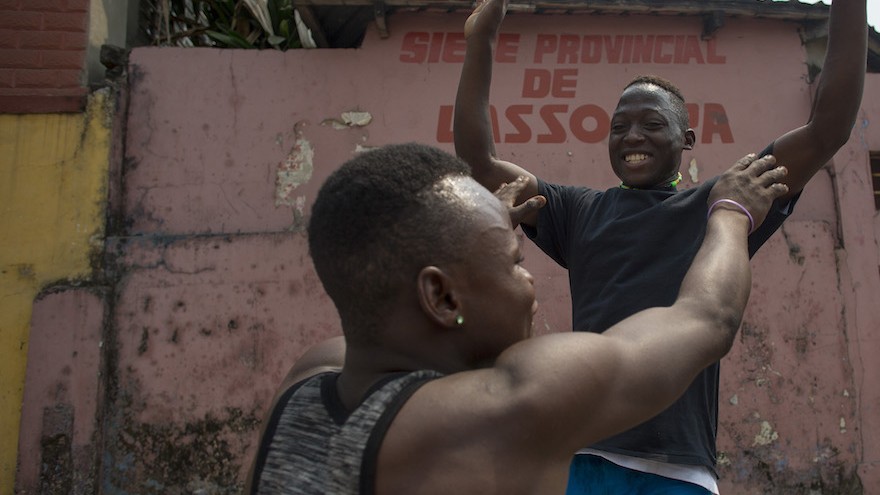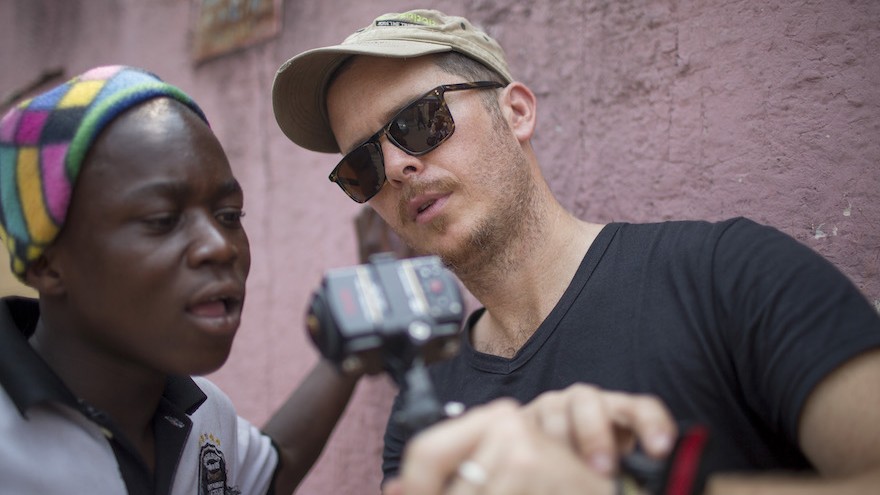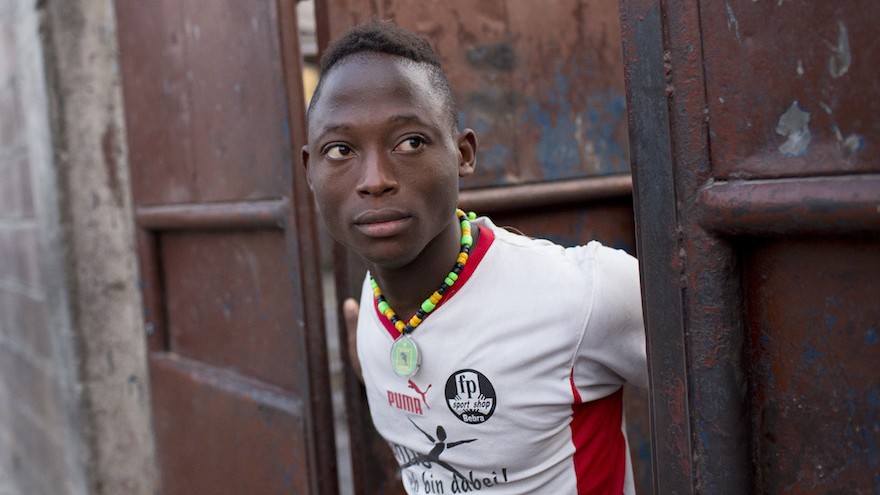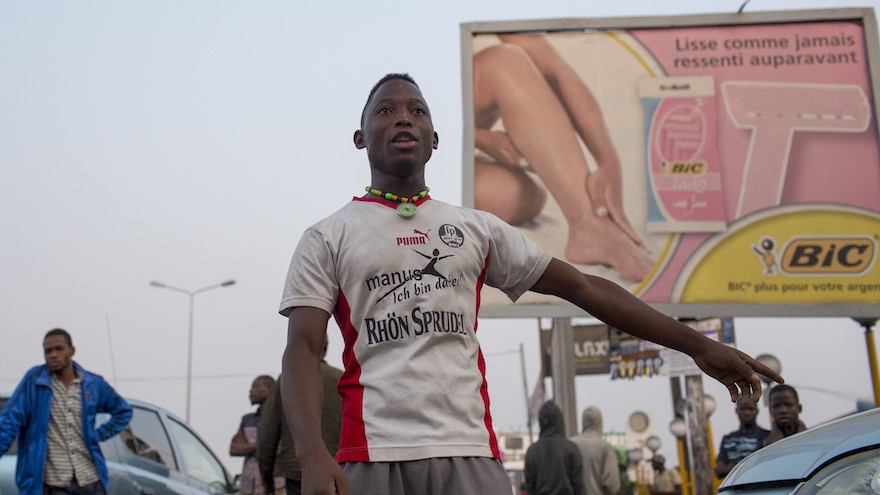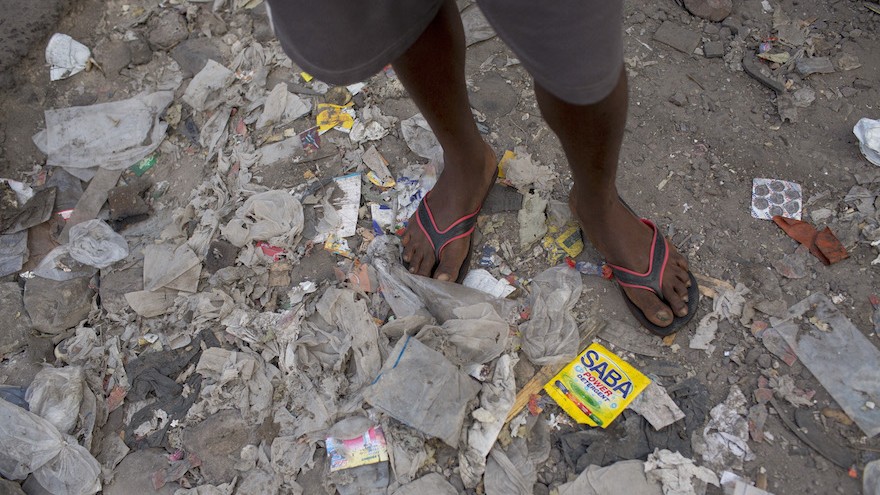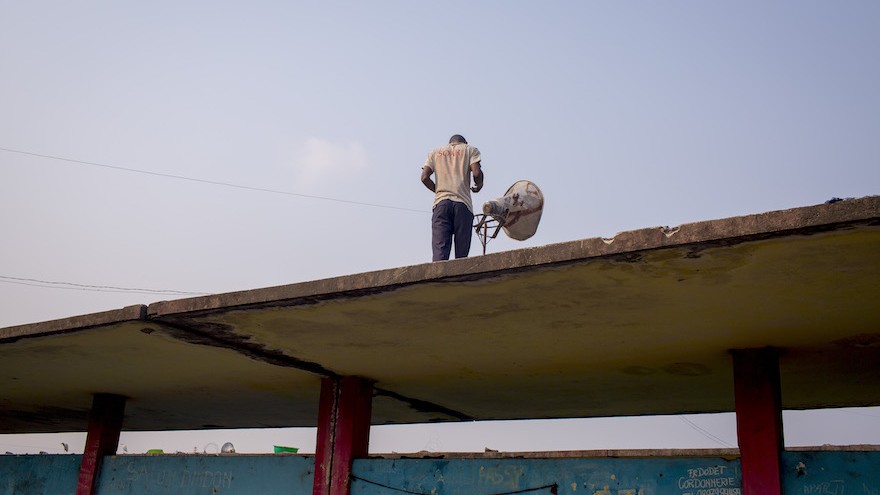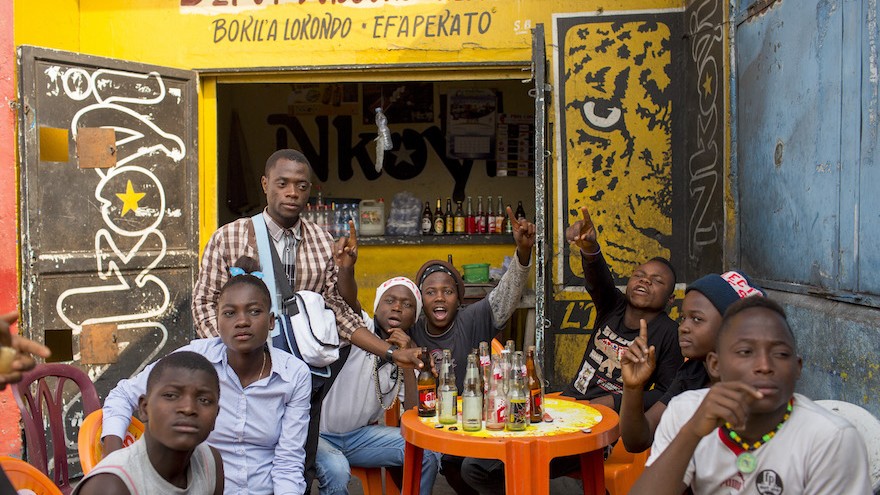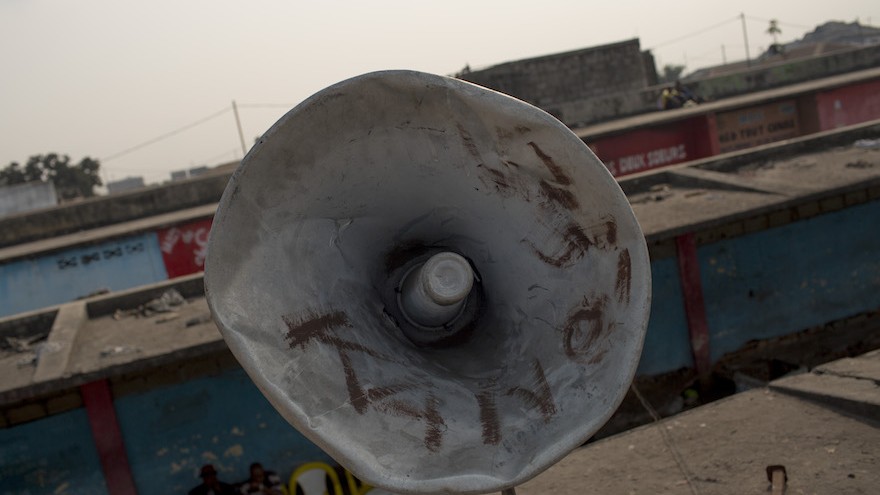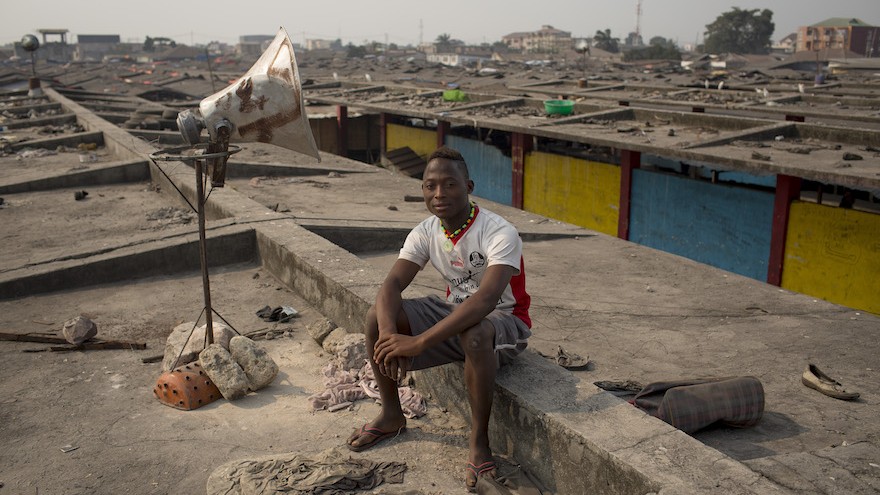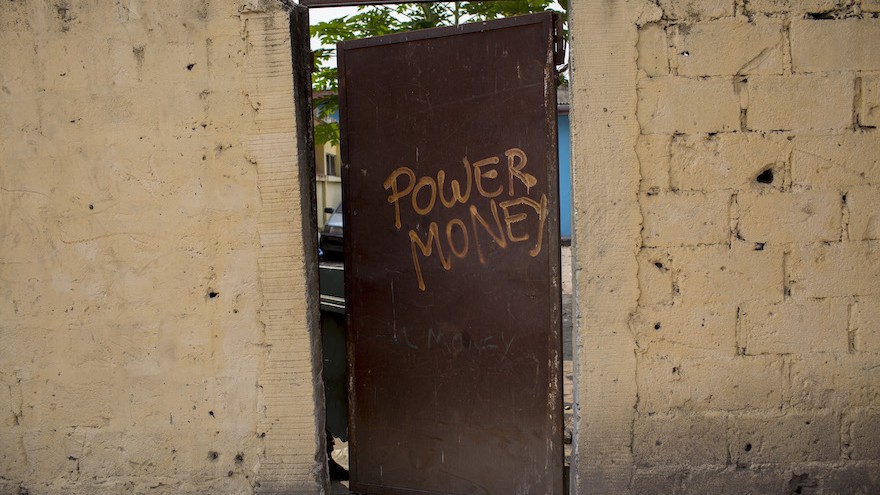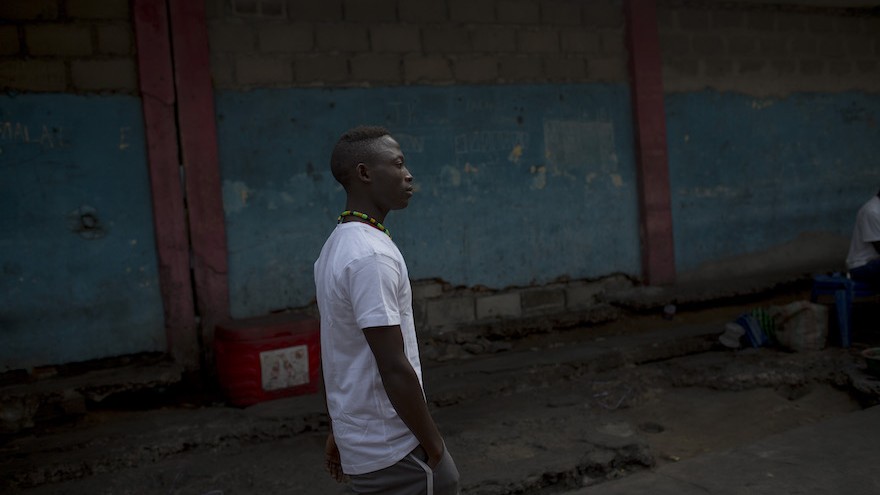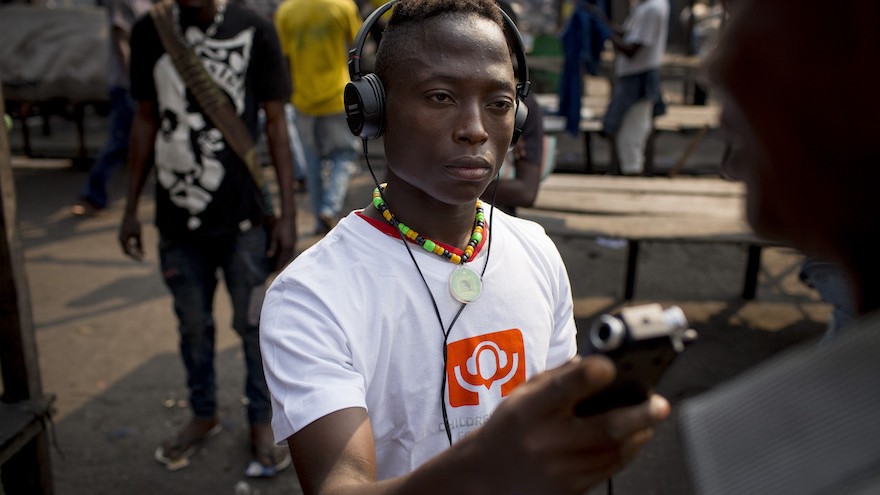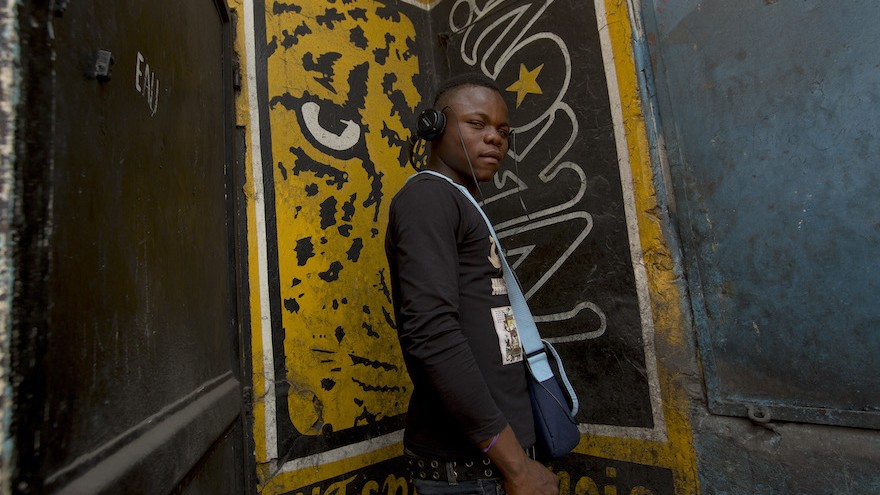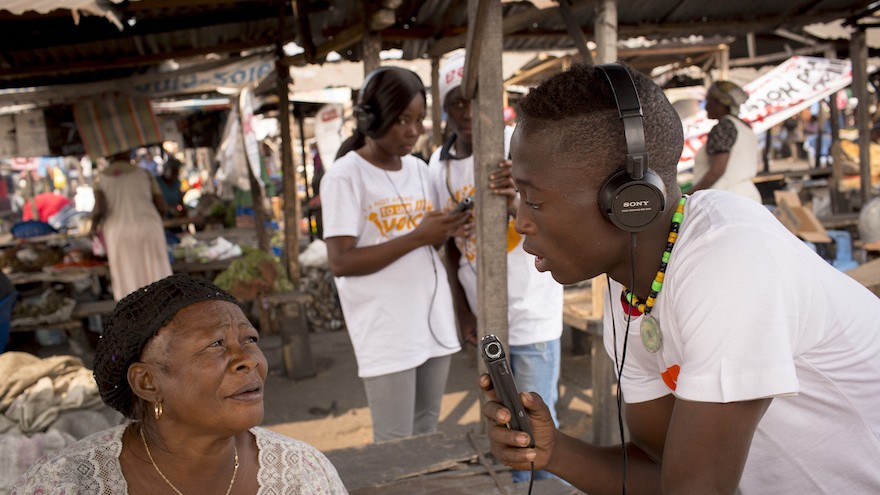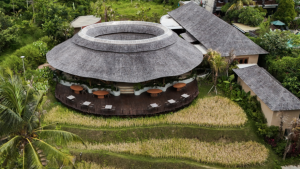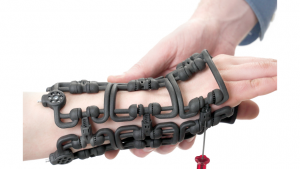There are thousands of young people living on the streets and in shelters in Kinshasa. Back in 2011, the Children’s Radio Foundation, a non-profit organisation using radio to empower youth across Africa, launched their Voice of a Child project in Kinshasa, D.R.C. It’s a radio station run by 30 young people in the city, giving a voice to children and teens in a community that (until then) had refused to listen to them.
The project’s co-ordinator Bob Yala, a former journalist in the country, joined Voice of a Child when he realised that other charities in the area did not understand the intricacies of this phenomenon. “In extreme poverty religious sects give people hope”, says Yala. “Yet there are many charlatans in these sects, and pastors persuade families to drive their children away. It’s a heart-wrenching situation.”
“There is no real engagement from other NGOs,” he continues. “They don’t truly understand the problems on the streets.”
Even though only 30 of the young people work directly on the project, the radio reports are broadcast throughout the capital’s sprawling Gambela Market, meaning they’re heard by other street children too, giving hope to many. The broadcasts are also heard by vendors on the market, local business people, and even the families who drove their children away from their homes in the first place.
“In its attempt to spread awareness the project does work,” explains Yala. “We have seen some children reintegrated with their families.”
Husband and wife team Rowan Pybus and Sydelle Willow Smith, who run the media agency Makhulu, make short films and impact campaigns with a focus on media that matters. Their most recent film is a 360-degree virtual reality film set in Kinshasa. It tells the story of Samuel, a Children's Radio Foundation youth reporter who despite living in a shelter and having no home or family has managed to find his voice through radio.
Makhulu uses its Sunshine Cinema – a solar-powered mobile cinema – to screen educational and training material that addresses social and environmental challenges. It is through the work with Sunshine Cinema that Makhulu director Pybus began to branch out into VR.
The virtual reality medium is honest, and that’s what I need it to be; I need people to understand what’s going on very quickly in order for better decisions to be made. We don’t have this external curated stuff – what you see is what you get, Pybus explains.
“That honesty is what I’m most drawn to about virtual reality, especially in the context of how distorted the euro-centric viewpoint is of the continent of Africa,” he adds. “Just that alone – that people don’t understand that it’s a continent, they call it Africa like it’s a country – is a terrible euro-centric point of view that needs to be addressed full on.”
Like any medium, the use of VR is dependent on the audience the piece aims to engage with and how. Even with all the talk of it being the future medium of story telling, VR doesn’t necessarily have the power to always inject an apathetic audience with a shot of empathy. But it does offer a new way of immersing the viewer in the story. Everyone’s version of the experience is individualised depending on where they choose to look while the watch.
The filmmaker takes a step back in the process, as you literally have to hide during capturing the shots, explains Willow Smith. There were a lot of funny moments on the streets of Kinshasa when we had to hide behind dumpsters and cars and inside little canteens to make sure we didn’t appear in any of the footage.
Makhulu is currently in preproduction on a international series of films and screenings with Sunshine Cinema and a number of partners, including Children's Radio Foundation, across Southern and Eastern Africa.
“We will produce first-person virtual reality short films with young people affected by HIV/AIDS and set up VR booths for the content to be engaged in clinics as well as 360 projections in communal spaces to provoke new conversations around stigma and access to treatment”
We looked at this project in light of #WorldRadio day. Take a look at more inspiring design on the African continent:
#GlobalGrad Tshepo Mokholo on innovating traditional architectural practises
Reviving the history of cocoa production in Ghana
Kordae Henry explores mineral trade in the Congo using a sci-fi film

